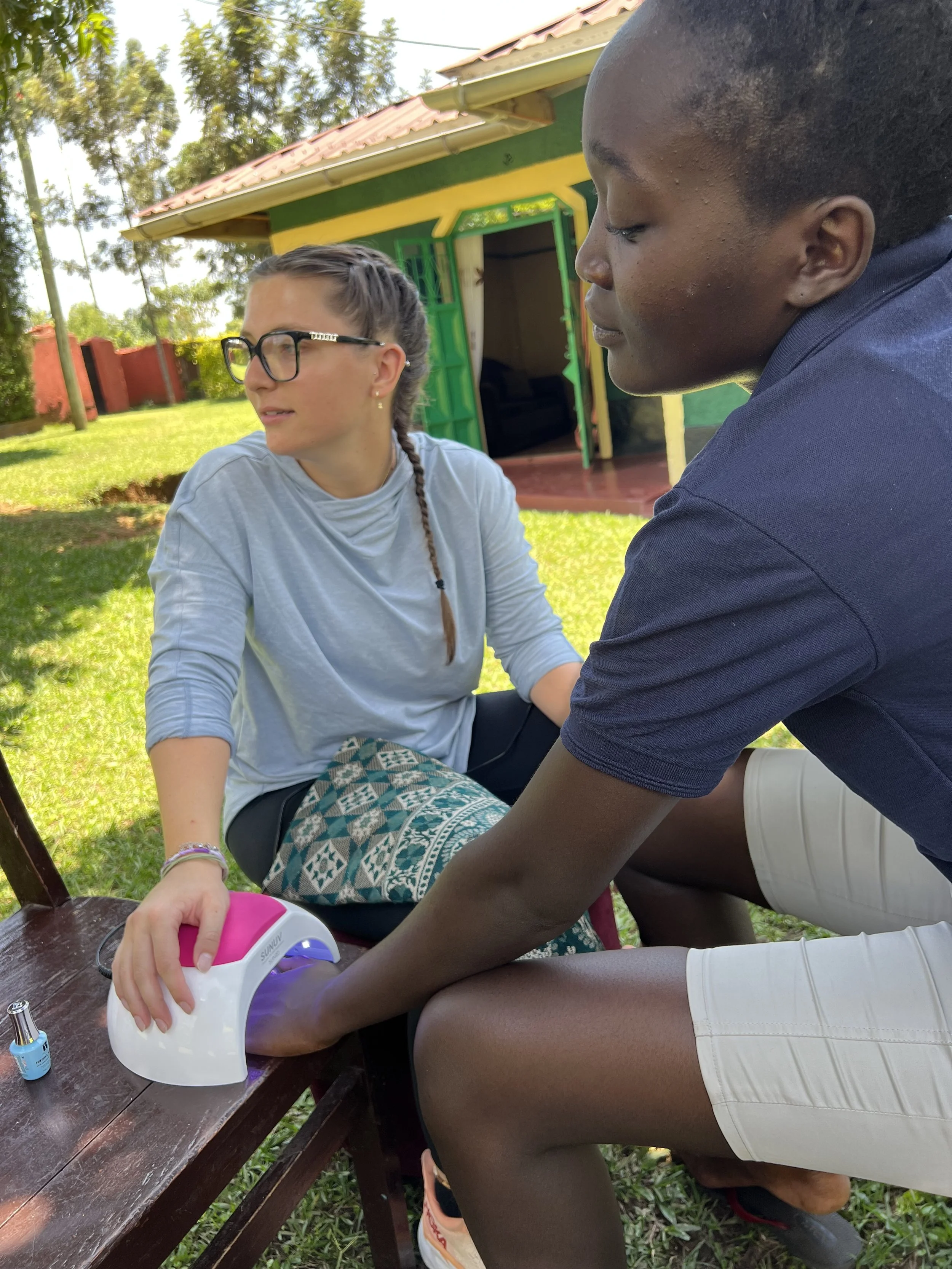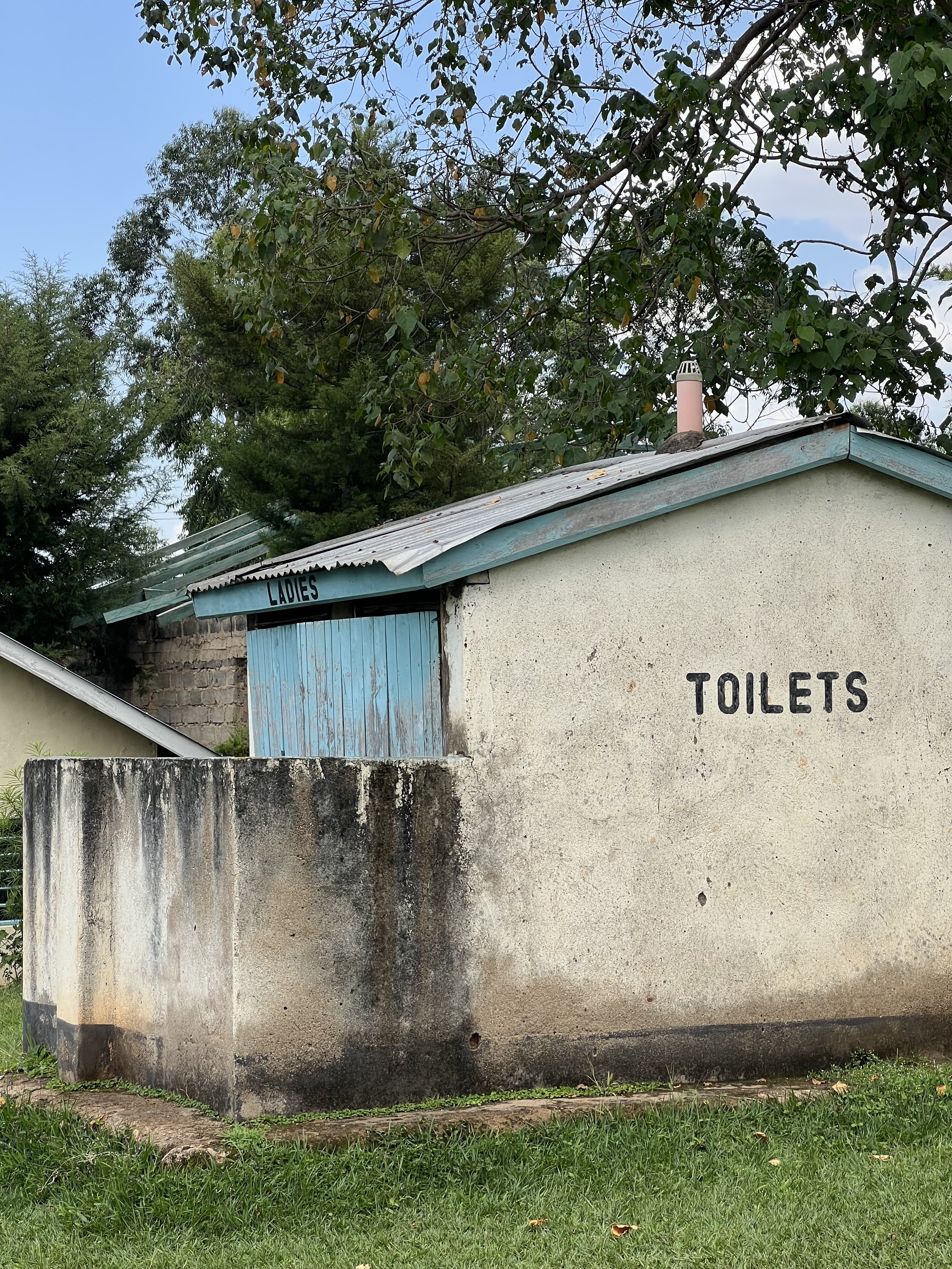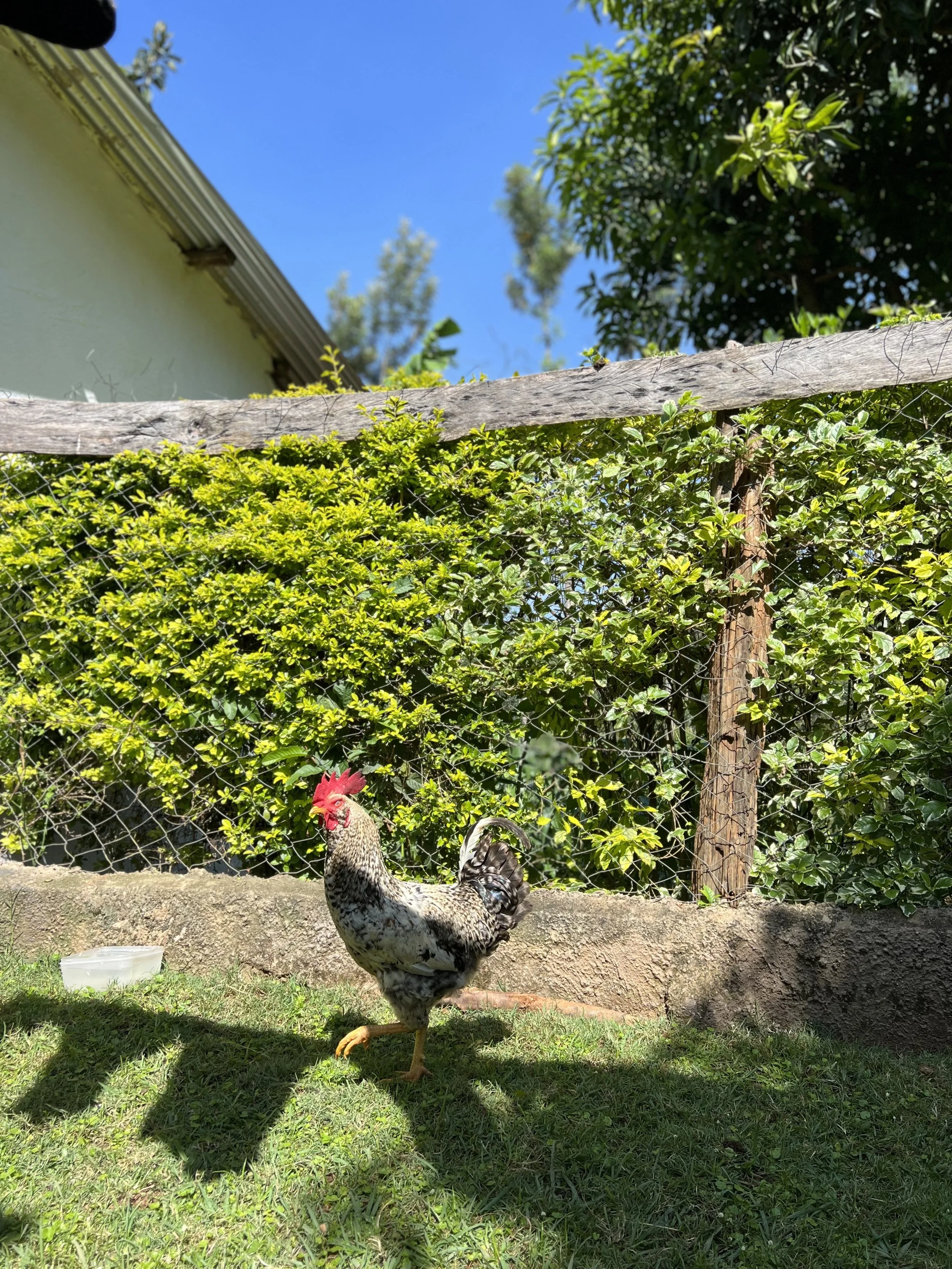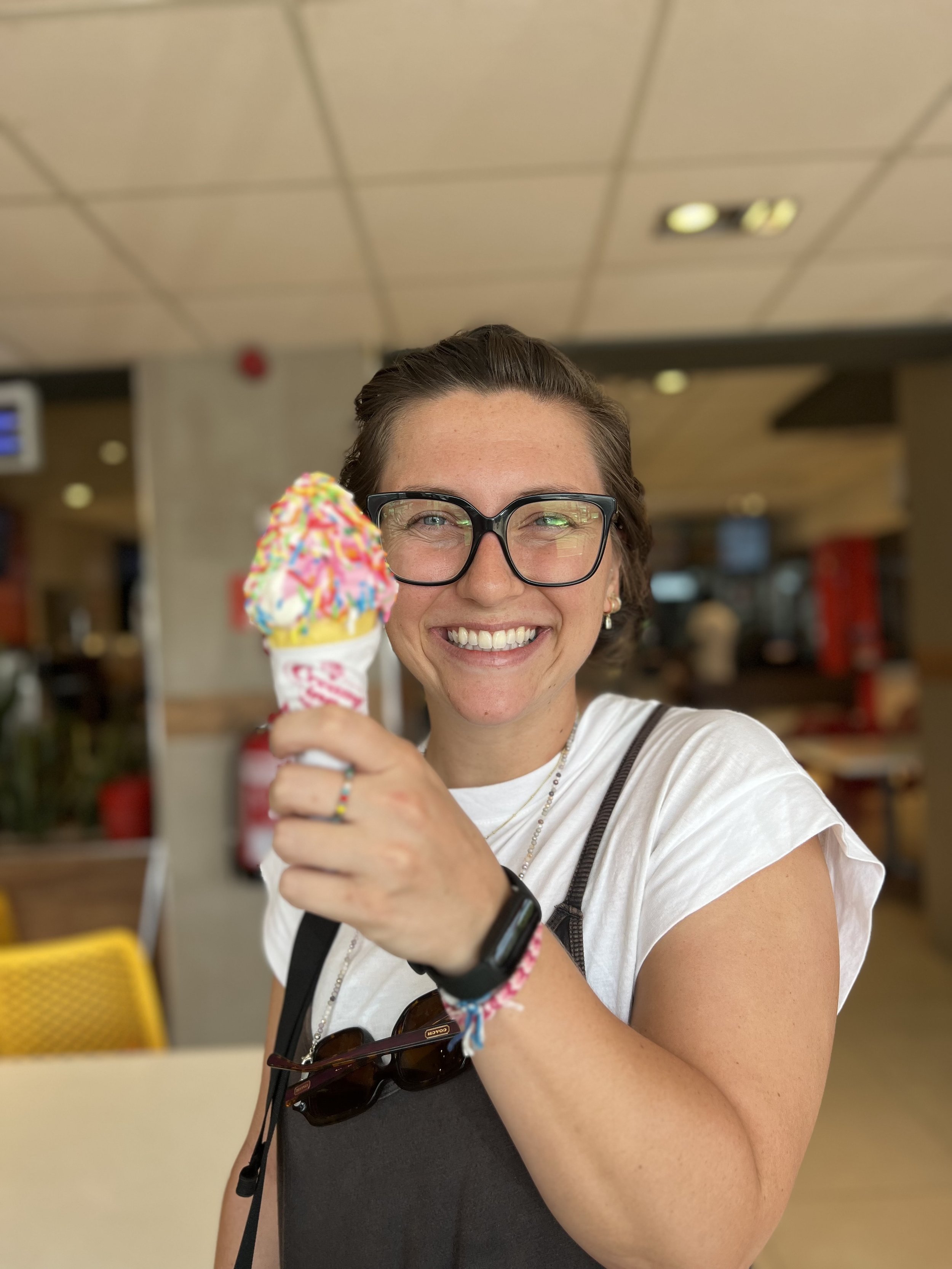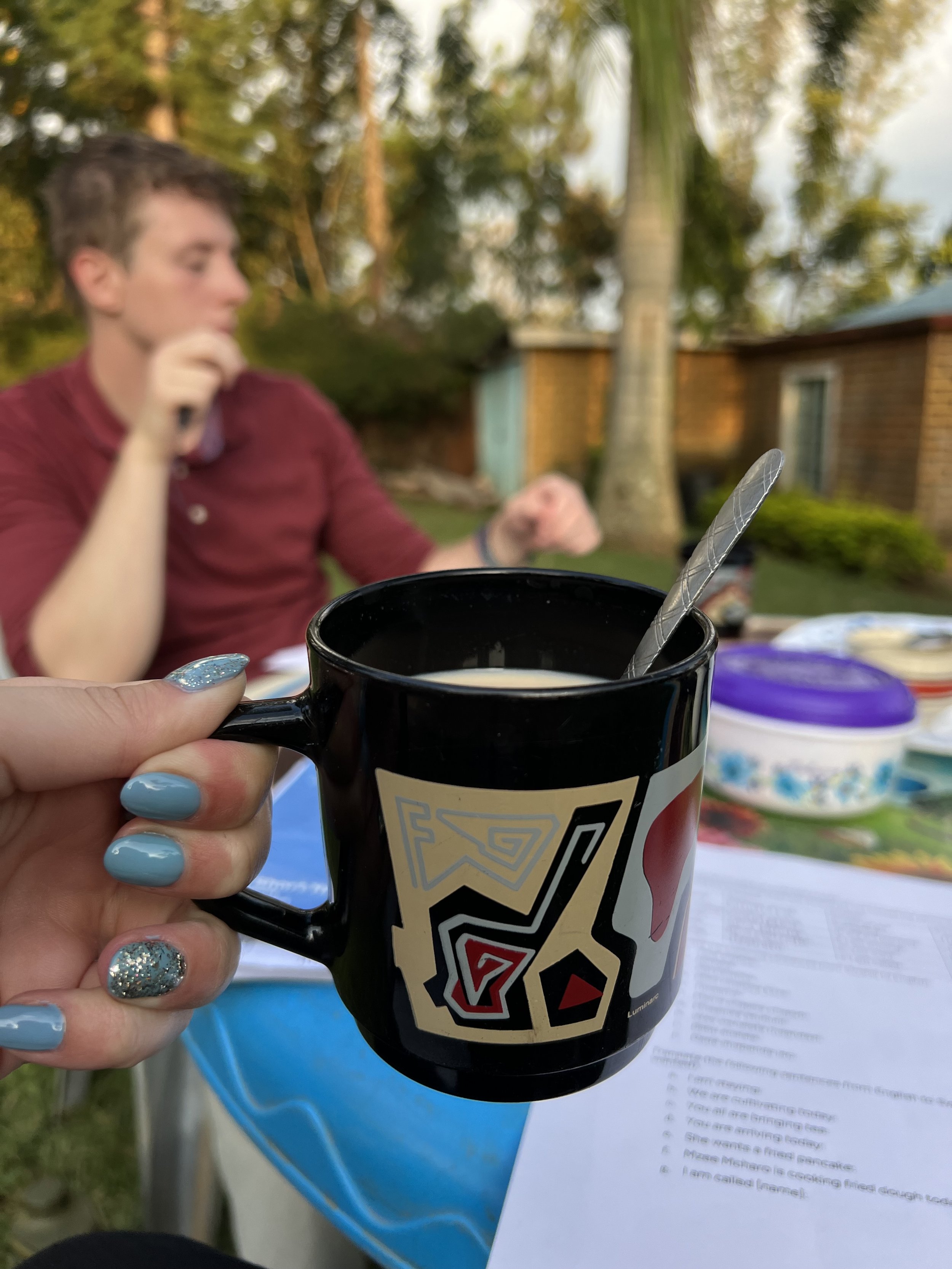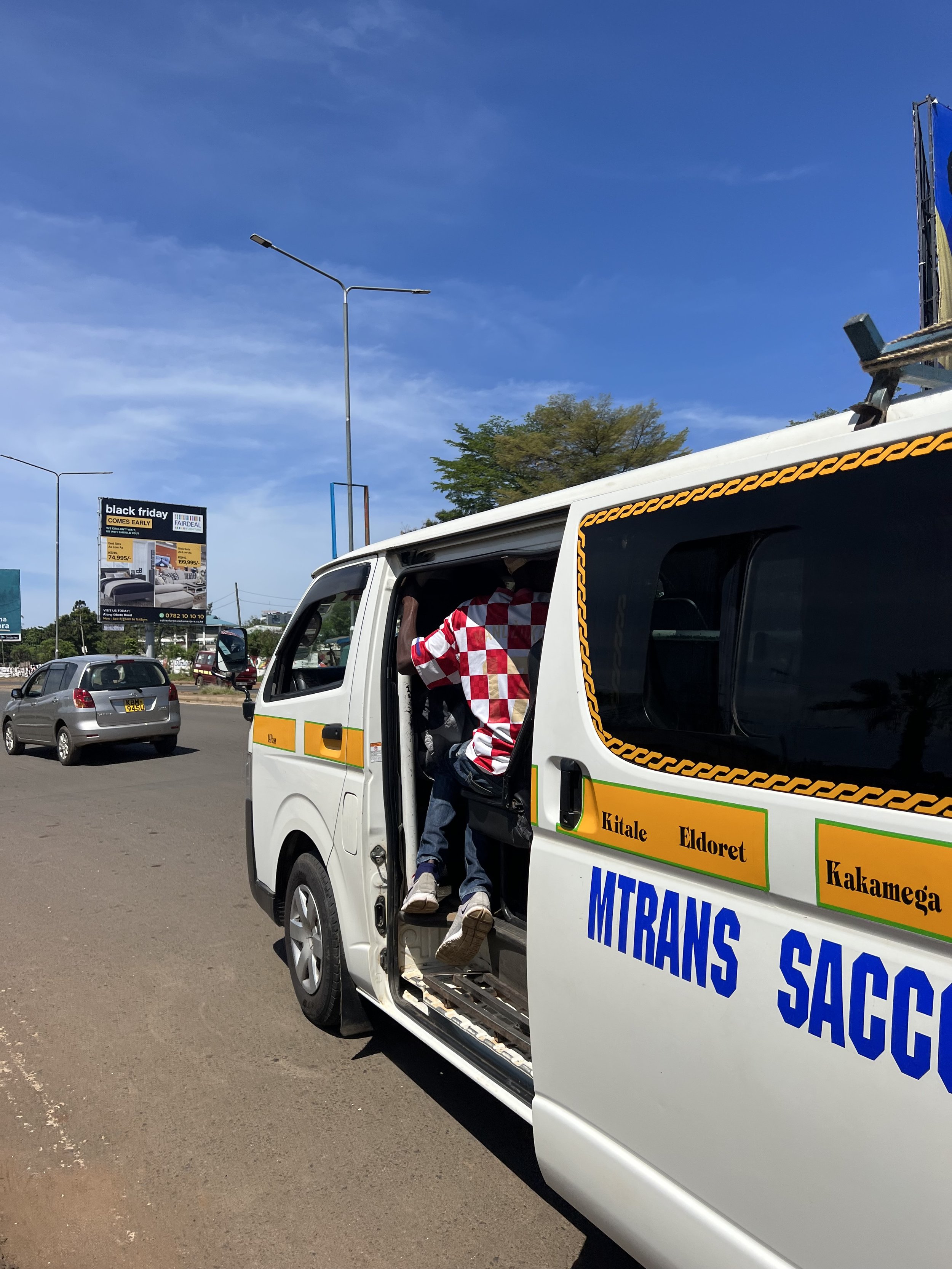Kenya: Week 3 Pre-Service Training
Kenya: Week 3 PST
During week 3 of pre-service training, I continued my school/language/culture training and became more familiar with my community. In this post, you can read about hub days, things I’ve noticed, community quirks, fun adventures, neighborhood mamas, and my first matatu ride.
Hub Days
Each week, we are required to go to the hub for two days (one night) for Peace Corps Training. The hub is the learning center and housing location that we stayed at during Week 1 of Pre-Service Training. The hub is about a thirty-minute drive from my host family home. The tricky thing about getting to the hub is that we can’t drive, we can’t take a piki piki (motorcycle taxi), and my town does not have a matatu stage (scroll down for matatu details). Due to this, the Peace Corps has organized a private matatu that picks me and the people on my street up to take us to the hub. It costs 400 KSH each way (about $2.7 USD) per person. This is a very pricey matatu ride and my host mama is not happy that this is what we are being charged, but for right now while we aren’t the best at negotiating prices or familiar with transport options, it is a good price for the convenience of getting to the hub. It is humorous to get all of us and our weekend luggage packed in the matatu. I can also imagine the community members find it humorous as well because there’s eight of us walking down the main street with our weekend luggage to a matatu where there isn’t a matatu stage.
Once we make it to the hub and place our luggage in one of the rooms at the learning center, we start our first meeting at 8AM. Meetings typically go until about 4PM on the first day of hub days. These days are very heavy. At first, I was struggling to stay engaged all day. Now I make knot bracelets with embroidery thread while I listen and this has made a world of difference for my attention span. I’ve made eleven bracelets so far… we have a lot of meetings😊Savannah taught me a new pattern that takes longer to make, so I’ve switched to this bracelet pattern so that I can preserve the embroidery thread that I brought with me. After 4PM, we are free to go and do what we want as long as we are back by 7PM (yes, we have a curfew). At night, we have dinner and hangout a lot because many of us don’t see each other during the week. On the second day at the hub, we start meetings at 8AM and they are supposed to last half of the day, but we usually don’t start going home until around 3PM. The private matatu takes us back to our home stay village and we are free to do what we want with the rest of our day.
Things I’ve Noticed
We have a TV at home and we have an established nightly watch schedule. First is news in Kiswahili at 7PM, then we watch Becky at 7:30PM (a Kenyan soap opera we are very invested in as a family), followed by a Spanish soap opera dubbed in English at 8:00 PM, and then news in English at 8:30PM. The news covers local and world topics which is helpful in understanding what’s going on in the area I am living in and in the world. My family gets very excited when President Joe Biden comes on the TV and they insist that I come to the living room whenever he comes on. This really humors me and I think they do it now just to get me to laugh. They have also started calling me to the TV whenever cute baby animals come on the farming channel which I also appreciate because who doesn’t like baby animals😊
There are a lot of teenage boys named Barack. The father of former President Barack Obama was from Kenya, specifically from the region that I am working in. I can’t say that all these children were named after the former President, but they were born during his time in office and I haven’t met any adults named Barack yet. It seems as though Obama’s time in office was a point of pride for many people in Kenya. I’ve never been to a country where the people were so passionate and attached to one of our Presidents, and I think it’s pretty cool that this pride is still being carried on.
Community Quirks
Market Day! The community I am living in has a market that is a fifteen-minute walk from my host home. It’s located on the main road which is paved and is pretty extensive. At the market, you can find locally grown vegetables, fruits, and meats in addition to basic household items such as soap, toilet paper, and washing basins. On Tuesday – Sunday the market is normally stocked, but on Monday, it’s Market Day. On Market Day, all the stores are fully stocked and there are additional unofficial vendors that set up on the road with items that are not typically available on Tuesday – Sunday. This also draws many people from the community and the market is much busier on Monday than the rest of the week. Last Monday, I found new soda flavors, peanut butter, and purchased my own dirty clothes bucket/wash bucket (an exciting haul😊).
Toilet Paper! A very significant quirk is having to carry around toilet paper in case you need to use a cho (toilet that’s a hole in the ground) while you are out and about. I say significant because if you forget your toilet paper and find yourself in need of a cho, you are SOL (literally). It’s a mistake you’ll only make once😊
Church Drums! Forget about the rooster crowing to wake you up in the morning. I am awake before the rooster almost every day because of the 4AM church drums. I’m not sure what church it is, if it’s many churches, where they’re going, or what they’re doing, but it’s happening at 4AM. The first time I heard them I was very confused because it is very loud and it sounds like they’re right outside your window. The first night I heard them, I checked to see if they were in fact outside my window, but they were not, they just sounded like it. I’m now familiar with them and I’ve started to notice them throughout the day as well because church happens at any hour of the day and any day of the week.
Fun Adventures
One of my favorite days happened this week. After teaching me how to do my laundry by hand, Sheila and I did each other’s nails. It was super relaxing and the neighbors thought it was super interesting so we had a little audience😊When we were done, we walked about 30 minutes to Savannah’s house, picking up Andy, Cici, Margaret, Laura, Marissa, and a ton of neighborhood children on the way. Savannah’s sweet Mama Daisy had lunch prepared for us before we hiked to a really nice overlook. We had to walk through someone’s corn field to get there, so I hope they didn’t mind. Once we saw the overlook, the kids took us back towards town to a forest where there are monkeys. Sure enough, the monkeys were there, but they were very difficult to see and almost impossible to capture on camera. I think the people living near the forest got a kick out of watching us run back and forth every time one of us spotted a monkey moving between trees. We ended this awesome day with a soda from town.
Another one of my favorite days happened this week, but it didn’t happen in my village. It happened on my first matatu trip to United Mall (read about the matatu experience below). United Mall has a Carrefour (to me it feels like a mix between an Ingles and a Walmart), clothing stores, technology stores, a nail salon, and restaurants. Next to United Mall is Naivas, a fancier grocery store that also has a home goods section. It had been almost a month since I left my home and this trip made me so happy because it reminded me of home. I was able to purchase dry shampoo (so happy about this), an extension cord, snacks (gummy bears and pringles are my staple foods), clothes pins, a Simba stuffed animal (100% an impulse buy), liquid hand wash detergent (doesn’t clean the clothes very well but adds scent), hangers, body wash, bleach, a notebook, microfiber cloths, and a loofah. Not only was I able to find all of this, but we got to do a free wine tasting in Naivas! We ate KFC for lunch and it was delicious. It was also the first time I’d had a chilled soda since arriving in Kenya, and it was a highlight of the trip. We also found earrings in the shape of Africa and CiCi, Savannah, and I purchased them to wear for our swearing in ceremony in December. We ended the trip with ice cream, and if anyone knows me even just a little, this was probably one of the best thing that’s happened to me this month😊
Neighborhood Mamas
Mama Sylvia is my next-door neighbor. She calls herself my older sister and I’d agree with that statement. She and I do a lot of beauty trading. For example, she does my hair and I make her a bracelet. It’s a win win situation. She taught me how to make chapati and how to cook A LOT of ugali on an open outdoor fire. She has such a big and positive personality and I’m thankful to have her on my side. She’s a nurse and business woman and I’m happy we’ve become friends. She just got a ton of baby chicks and it’s so fun to play with them. Sylvia is the first person I chat with when I come home from school before I go to my house and I’m super thankful for her.
Mama Grace is Lucas’ mom and I’ve gotten to know her because we often have language class at the outdoor table at her house. She is the sweetest woman I’ve ever met. If you go to Mama Grace’s, she always insists that you drink chai (tea) and have a snack. Some of her favorite snacks to bring us in humorous excess are bananas, bread, mandazi, and peanuts. If you don’t finish the chai and/or the snacks, it concerns her greatly, so you have to power through or take it to go.
First Matatu Ride
Let’s first address what a matatu is. It is a privately owned minibus that functions as a shared taxi. Most matatus are decorated and have themes. One that I saw recently was a Houston Texans themed matatu. It is called a matatu because “matatu” means 3 in Kiswahili and a matatu ride used to cost 3 pennies (this is not the case anymore). A matatu is operated by three main people: the driver, the conductor, and the stage worker. There can be multiple drivers, conductors, and/or stage workers, but they work exclusively with their own matatu(s). Drivers drive the matatu, conductors stand in the sliding doorway (Yes, in the doorway. No, the door does not usually close.), and stage workers stand at the staging area in major towns.
When attempting to board a matatu to go somewhere, the first person you will talk to is the stage worker. You will tell them where you want to go and then it’s their job to flag down the correct matatu to take you to that destination. Matatus drive their own routes like public transportation buses would drive their own routes, but you can’t tell where a matatu is going just by looking at it because the decorations have nothing to do with the direction they’re traveling. After the stage worker gets you on the correct matatu, you tell the conductor where you are going. The conductor is the street eyes for the driver. He looks out for stage workers that have riders and ensures that the driver stops at the correct stops for all his passengers. He quite literally hangs out the side of the minivan and hits the top of the van when the driver needs to stop. The conductor also collects money when it’s time to collect. You need to give them exact cash and it is recommended to know what you should be paying for the ride so you don’t get overcharged. The driver’s job is pretty normal and he depends on the conductor and stage worker to get customers to and from where they need to go.
I took my first matatu ride this week with Andy, CiCi, and Savannah when we went to United Mall. The trip was overall pretty smooth and the system seems to work. It cost 100 KSH each way. It used to cost 70 KSH, but gas prices have risen recently and thus the matatu prices had to follow suite. The only tricky thing is time. It took us about 20 minutes to get to United Mall but almost an hour to get back home because the matatu on the way home took a lot more stops and then stopped to get gas before dropping us off. There are more people inside the minivan than the minivan has seats. Once the seats are filled about two people to a seat, the aisles are covered by wooden planks to add additional seating (like a jump seat). There are also two seats in the front by the driver that people can sit in. It is definitely a unique experience, but something I will be getting very used to because this is one of the main modes of transportation over long distances.
The contents of this website are mine personally and do not reflect any position of the U.S. Government or the Peace Corps.

